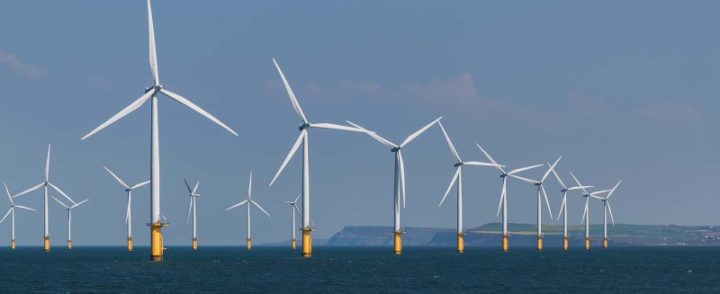Norway to launch 1.5 gigawatt offshore wind tender
OSLO, Feb 9 (Reuters) – Norway will launch later this year its first tender for bottom-fixed offshore wind turbines in the southern North Sea, planning to develop 1.5 gigawatt of electricity that will supply the Norwegian mainland, the country’s government said on Wednesday.
Offshore wind is seen as a key new industry offering a potential transition for Norway’s dominant oil and gas sector to a renewable energy future, while building on the existing industry’s technical know-how.
The first turbines could be completed in the second half of this decade, Prime Minister Jonas Gahr Stoere said in a news conference, adding that government subsidies may be needed to get the project going.
A planned second development phase, in the same area of the southern North Sea, will come later, have the same capacity and may supply power to the European continent, Stoere said.
The question of exporting power to the rest of Europe is controversial in Norway due to the potential impact on domestic power prices. Like elsewhere in Europe, Norwegian consumers have had to cope with rising bills in recent months.
The first 1.5 GW phase could provide 7 terawatt hours (TWh) of electricity, equating to the demand of 460,000 households, the government said.
Separately, Norway’s centre-left government, which took office in October, reiterated plans to allow industry to develop floating wind turbines in a different area of the North Sea, called Utsira North.
The government would also seek to identify other offshore acreage for wind turbine developments elsewhere.
Norway’s previous government had selected the two North Sea areas for development of up to 4.5 gigawatt of bottom-fixed and floating offshore wind, which has garnered massive interest from domestic and international investors.
Equinor (EQNR.OL), Orsted (ORSTED.CO), Eni , Shell (SHEL.L) and BP are among the companies that have expressed an interest in the developments.
However, the tender process has faced a delay recently amid a spike in power prices, rising domestic demand and discussions over whether Norwegian offshore wind farms should be connected to other markets.
“This is no push for offshore wind,” Halvard Raavand, an advisor with Greenpeace, told Reuters on the sidelines of the news conference, highlighting the limited areas on offer.
Norway was still too focused on oil and gas, as illustrated by the government awarding 53 new petroleum production licences in January, he added.
Reporting by Nora Buli; Writing by Terje Solsvik; Editing by Gwladys Fouche, Paul Simao and David Evans.


